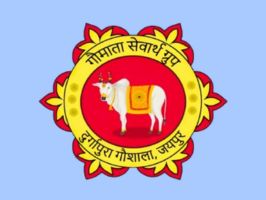Event Marketing: Marketing in Event Management
The activities involved in event management are incredibly diverse, ranging from logistical planning to creative brainstorming.
Another duty that falls under this category is event marketing, which requires organisers to plan the best ways to advertise their event, build a solid reputation, and maintain good relations with guests.
On how to promote an event, there is a lot of general information available. To help you advance your marketing efforts, we’ve compiled a list of the top 8 event management company marketing tactics in this post.
What is Event Marketing?
Event marketing is a marketing strategy that promotes a company, service, or good by organising events or experiences. Potential customers can interact with brands and their representatives in a far more engaging way during these occasions, which might be physical or virtual.
Event marketing is both a phrase and a marketing strategy that refers to the methods used to advertise events in order to draw participants and enhance the experience.
Why is the Importance of Event Marketing?
Because it enables them to talk and connect with potential customers directly, event marketing is a crucial marketing strategy for many businesses, increasing the possibility of conversion.
Events are also a terrific opportunity to differentiate yourself from the competition and attract press attention that can boost brand recognition and reputation.
Event marketing is becoming more popular as consumers want the novelty of an in-person (or virtual) event that gives a distinctive experience that is not available anywhere else in a time when so many things are instantaneously accessible from anyplace. In order to capitalise on this enthusiasm and to generate chances for networking, new business alliances, as well as higher sales, brands should think about organising events as a marketing tactic.
What is B2B Event Marketing?
A specific form of event marketing known as B2B (business to business) promotes the service or product that one business delivers to another. B2B events place more of an emphasis on networking possibilities and lead generation than B2C events do on providing delightful customer experiences and enhancing brand awareness and image, which may result in partnerships or sales.
The contacts created by B2B events enable businesses to exchange tips, knowledge, and data about their endeavours and the sector, which benefits everyone involved by fostering partnerships, resolving issues, and enhancing brands’ reputations as leading thought leaders in their respective fields.
These occasions can also help organizations learn more about their rivals and the products and services they provide, which can help them determine what has to be changed to catch up to them or differentiate themselves from their offerings.
8 Marketing Techniques for Event Management
All types of B2B and B2C events are planned and executed by event management businesses, and many of them will also be involved in promoting these events to increase attendance. Here are eight of the most effective tactics that event planning businesses may use to design and advertise events to attract plenty of attention and provide the greatest possible experience.
1) Establish target audience personas.
First things first: you must identify your target audience before you can decide how to promote your event. When designing a marketing strategy, conducting target audience research is always a smart place to start, but creating audience personas is the ideal approach to combine this knowledge.
A target audience persona is a fictitious representation of the demographics of the attendees of your event. You’ll typically have at least two or three distinct personas within your target market, while some brands may target more if their event is significant or their product line includes something for everyone.
Each persona should include relevant data about the demography to which they belong, including things like:
Age Identity (gender, sexual orientation, and/or religion)
Work-related Interests
Financial Motivators
common aches and pains
What they hope an event will provide
This information can then be used to customize various marketing initiatives to these various personas, allowing for far more targeted approaches and generally more effective outcomes.
2) Consider your metrics as you plan.
An efficient marketing plan should have a clear business objective at its core. Planning with metrics in mind results in more effective event marketing since events should always be planned with the objective of moving closer to one of your larger goals.
For instance, one of your company’s objectives for the year might be to get included in at least 10 different trade periodicals. Therefore, to make obtaining coverage as easy as possible, you should create an event specifically aimed towards being featured in one of these magazines, make sure to invite individuals from the publications, and put together press packs prior to the event.
An example of a B2B goal might be that you want to form at least three collaborations with other companies in the sector in the next 12 months. Therefore, you should include networking time expressly into your event, invite prospective partners to come, and prepare a pitch in advance if a conversation is moving in the correct direction.
3) Describe and improve the attendee journey
We’ve already discussed how one of the main pulls is the experience of going to an event and the potential exclusivity that comes with it. However, this experience begins and finishes much earlier and later than the event itself, and a genuinely effective marketing approach in the events business makes the most of this full attendance journey to profit as much as possible.
The greatest method to make sure you’re fostering anticipation, establishing your brand identity, and delivering an exceptional experience from beginning to end is to map out an attendee path. Once you know how to reach potential attendees, you may utilize various marketing strategies at each level to encourage as much interaction as you can.
Think about how a potential participant could first learn about your event and what might be required to motivate them to register. This might entail sponsored social media promotion, mentions in trade journals, endorsements from prior participants, or perhaps an opt-in on your website with a lead magnet that enables you to promote the event to visitors who have provided you with their contact information.
Once someone has registered for your event, consider how you may pique their interest in the experience by providing tips on how to prepare or by releasing teasers of what’s to come. You can also utilize this step of the journey to fill them in on the event’s history, adding a personal touch and increasing its interest by adopting a storytelling technique.
You’ll have several opportunities to engage with participants and make sure they’re having a good time at the event itself. Also think about how you could continue the experience by providing access to information provided on the day of the event, sending out a survey, or assisting attendees in staying in touch.
Create a detailed map of the complete attendee journey, establish what you want to achieve at each point, and then come up with numerous strategies for doing so.
4) Give inbound techniques top priority
An method to marketing known as “inbound marketing” aims to generate interest by helping you establish a solid reputation among your target market. Inbound marketing strategies focus on providing relevant information and services that your target audience will find useful and on raising awareness by enhancing your brand image rather than going out and pushing marketing materials on individuals who may not be interested.
Utilizing inbound marketing tactics for event management entails producing content that will appeal to your target market. This won’t be directly promoting your event; rather, it will be discussing a relevant issue that might persuade the reader to learn more about the event.
Inbound marketing also entails fostering your connections with current or former attendees in the hopes that they’ll spread the word about your activities. This could be providing customers with early or exclusive access to items, freebies, or even just making sure you provide first-rate customer service.
5) Use Email Marketing to Create Excitement
Email marketing is one of the finest strategies to use for this since, as we’ve already mentioned, the attendee experience starts far before the event itself. Similar brief, digestible content is used in emails as it is in social media, but sending emails to specific attendees makes it feel more exclusive and allows you to customize the content to their interests.
Setting up an automated email sequence that is sent to everyone who registers for an event is the ideal approach for event management businesses to use email marketing.
This could entail:
- A confirmation email of their presence
- Information about what will take place at the event
- Background details on the occasion and its goal
- Advice on anything that guests may need to do or be aware of prior to the event
- Stories or materials about the sector the occasion is of
You may start to develop a stronger relationship with your attendees and keep the event in the forefront of their minds by sending them emails on a frequent basis prior to the event. As soon as someone registers their attendance, this serves to create anticipation and an experience.
6) Attend trade shows to network
Attending trade shows and taking advantage of networking possibilities are excellent marketing strategies for corporate event planners. It is easier to promote your event when you know that the other guests would most likely be interested in it. It is also a terrific method to start building awareness for yourself and your brand.
Because they are designed particularly for event planners, conferences are an excellent option for event management companies. Along with promoting your event, networking with a variety of other companies and professions will provide you fresh ideas for amazing experiences and help you improve the services you offer at your event.
7) Take Advantage of Post-Event Reviews
Monitoring and measuring your progress over time and making adjustments to your product in response to this is a crucial component of a successful marketing plan. Asking your audience is one of the simplest methods to acquire a clear understanding of what you could do better, thus we advise inviting post-event feedback from your attendance.
This not only prolongs the experience after the main event, but it also offers a very helpful analysis of how entertaining and successful your event was. You’ll come up with a clear list of things to start improving by asking attendees what you could do better, whether it be with your communication, your marketing of the event, or the organization of the event itself.
By promoting the fact that you solicit input from your attendees and providing concrete instances of the adjustments you’ve made as a result, you can take this idea a step further in your marketing approach. This not only offers a fantastic position for highlighting event highlights, but it also exhibits a dedication to improvement and demonstrates to guests that you are concerned about their experience.
8) Make Special Areas for Visitors
The more advantages you can provide participants with, the more enticing your event will appear. Giving all participants access to a virtual space or developing a community to promote networking and conversation is a fantastic idea for a benefit. You can then promote this as an additional feature of your event.
It is a wonderful reason to go and helps the experience extend beyond the planned event to create areas or communities where participants can network and receive access to exclusive information, whether online or in person. Making guests feel like they are a part of a community also helps to improve your relationship with them, increasing brand loyalty and increasing the likelihood that they will attend other events in the future.
Summary
Many fundamental marketing strategies, like social media advertising, search engine optimization, and promotional photos and videos, are already familiar to the majority of event organizers. However, the above guidance was picked because it is especially appropriate for event marketing, thus we firmly advise you to incorporate at least one of the proposed approaches into your next event marketing campaign. You can contact Arihant Global for your digital marketing needs.









